‘We’re spending more time exploring different varietals that are best suited to de-alcoholisation’Alcohol-free sparkling wine brand Wild Idol is declaring vintages. Wednesday’s Domaine is seeking out varietals that are best suited to de-alcoholisation. And California winemaker Jessica Tomei is trying to create wines that make consumers “feel there is a product that was made just for them”.
This innovation in the no/low category comes at an opportune time. The latest data from IWSR forecasts the sector to grow at a volume CAGR of 6% between 2023 and 2027. That’s led by no-alcohol at 7%, with low-alcohol expanding by 3% over the same timescale.
That represents more modest growth than in prior years but is typical of a market that is becoming more established. However, growth and category share varies dramatically between markets. The world’s leading 10 no/low alcohol markets (US, UK, Australia, Brazil, Canada, France, Germany, Japan, Spain, South Africa) make up around 70% of global no/low volumes.
Consumption of no/low alcohol across these markets grew 5% in volume in 2023, with the market now worth over $13bn.
There are two major things holding back the category. The first is taste (or perceived taste): with many consumers still saying they don’t like the taste of no/low products.
The second problem is availability: 40% cite that as the reason they don’t drink no/low more frequently.
Our sister publication BeverageDaily spoke with three producers to see how they are overcoming these issues and to find out more about their strategies and plans.
‘Knowing there is a bigger purpose behind the role Wild Idol plays in people’s lives is very inspiring’
Wild Idol’s premium alcohol-free sparkling wine is served in top restaurants
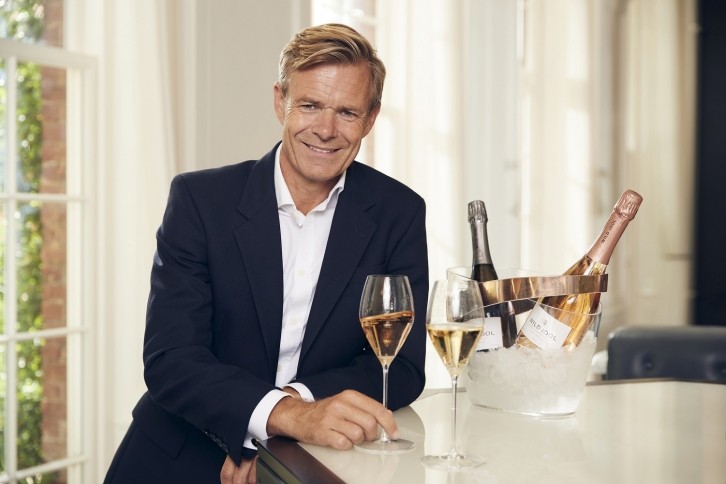
Paul Beavis (above), formerly managing director at Champagne Lanson and now CEO of premium alcohol-free sparkling wine brand Wild Idol, tells BeverageDaily how the London-based business has built listings in upmarket retailers and Michelin-starred restaurants – and how the drink will be served with alcohol-free afternoon teas at London’s The Gherkin this month!
Introduce us to Wild Idol.
Paul: “Founded in 2021, Wild Idol is a premium, alcohol-free sparkling wine, celebrated for its unparalleled quality.
“The meticulous skill and craftsmanship involved in perfecting Wild Idol’s White and Rosé variants took over two years to refine. Working with exceptional vineyards, we use winemaking techniques and a superior blend of grapes to produce the finest aromatics and the purest flavour.
“The team behind Wild Idol includes myself alongside a group of specialists from the drinks business and the luxury sector.”
Why did you choose the name ‘Wild Idol’?
Paul: “The name Wild Idol represents a celebration of nature and the essence of living in the present moment. ‘Wild’ pays homage to nature and the natural world, while ‘Idol’ signifies standing for something significant and revered.
“Our creature-like emblem is a sea lion’s head adorned with a lion’s mane, paying homage to our winemakers’ Kent origins. The Wild Idol Creature is full of untamed energy and freedom, reflecting the spirited taste profile and effervescent finish of our exceptional liquid.”
What can we expect from the Wild Idol drinking experience?
Paul: “Wild Idol is produced using the same techniques found in traditional winemaking, crafting a non-alcoholic version that closely mirrors its alcoholic counterpart, minus the alcohol content.
“We’re not trying to replicate the taste of alcoholic beverages, but rather to craft the finest naturally alcohol-free option available.
“Our production focuses on high-quality fruit and minimal intervention.
“Wild Idol White is made of 100% Müller-Thurgau grapes, offering a clean, naturally fruit-forward flavour and an aromatic character. By sourcing high-quality grapes with pure varietal flavours, we can ensure that Wild Idol embodies these unique characteristics.
“Similarly, Wild Idol Rosé is a blend of 85% Müller-Thurgau with 15% Merlot. As with the White, the Müller-Thurgau contributes aromatic and pure fruit notes, while the additional grape varieties enrich the blend, adding a depth of flavour and a beautiful hue.”
Where can we find Wild Idol?
Paul: “Our main market is in the UK, which is probably one of the most competitive markets in the world, especially within the premium sparkling beverage sector where champagne reigns supreme. Wild Idol isn’t about competing with other labels, it’s about offering consumers a premium, non-alcoholic choice.
“Since our launch, Wild Idol has found its place in over 300 hotels and restaurants from The Dorchester Collection to Hilton Hotels, collaborating with renowned chefs like Tom Kerridge and Jason Atherton. Wild Idol is also stocked in premium retailers such as Harrods, Daylseford, Selfridges and available to buy online through our own website.”
‘We cater to this strong female bias’Who are your consumers?
Paul: “With a market that’s 70% dominated by women seeking out alcohol-free alternatives, we cater to this strong female bias. While the audience profile spans various age groups, the demand is notably driven by Gen Z (also known as “generation sensible”) and millennials, who are embracing healthier choices and a ‘sober curious’ lifestyle.
“The beauty of Wild Idol is that it is a truly inclusive product, with no age profile restrictions, catering to conscious hedonists striving to go ‘wild and be free’.”
Your brand is very much about offering that ‘something special’ for alcohol-free drinkers at special occasions. Take us through how you’ve created that premium positioning.
Paul: “The careful, meticulous process through which Wild Idol is produced is key when communicating Wild Idol’s elevated positioning. This process reflects that of traditional winemaking, but without allowing the fermentation process to occur, which means minimal intervention is required.
“We are committed to providing a premium alcohol-free alternative that never compromises on taste or style! Each product is beautifully presented which perfectly complements the unparalleled quality of our non-alcoholic sparkling wines, perfectly suitable for any occasion.
“Setting a precedent, we are also the first naturally non-alcoholic sparkling to declare vintages from our label. Through our rigorous creation techniques, each vintage encapsulates the authentic essence of its year, ensuring a truly exceptional experience.”
Do you see a peak in sales in January?
Paul: “Actually, the festive season of November and December traditionally tends to be a peak period in the sparkling realm, notably because there is something about bubbles that brings people together during special moments. Undoubtedly, Christmas marks our busiest trading time, but Wild Idol continues to thrive beyond seasonal festivities as it can be enjoyed all year round.
“Dry January is also another key time for us as more people look to embrace this month for a variety of reasons, whether it’s to moderate, abstain or to kickstart a healthier 2024. We aspire to be the preferred premium alcohol-free sparkling choice during this period, extending our appeal to those seeking reduced alcohol intake beyond Dry January.
“Our retailers and venues have also responded to this Dry January demand, amplifying their drinks offerings to include premium alcohol-free options. For example, Searcys At The Gherkin will be offering an alcohol-free afternoon tea with Wild Idol throughout January, catering to this growing trend.”
And what should we look out for from your company in the rest of this year?
Paul: “As Wild Idol continues its journey since its inception, we’ve achieved notable milestones. Our products are now proudly available in retailers like Harrods, Selfridges, and Daylesford, and are listed in prestigious Michelin-starred restaurants, top-tier hotels, exclusive private members clubs and bars.
“Expanding our footprint internationally is a key focus. We’ve successfully entered the flourishing Middle East no-alcohol market, with strategic plans under way for expansion into the US market. Adding to our lineup, we’re excited to introduce our half bottle selection in both rosé and white variants. Building on this enthusiasm, we’ve recently launched magnums.”
What inspires you on your no/low alcohol journey?
Paul: “What inspires me on my no/low journey is that we are creating a brand new category and within that we are playing our role in the premium naturally alcohol-free segment.
“Throughout one’s career, having the ability to do something like this is very unique and rare and knowing that there is a bigger purpose behind the role Wild Idol plays in people’s lives is
very inspiring.”
‘Everything you want, none of what you don’t’
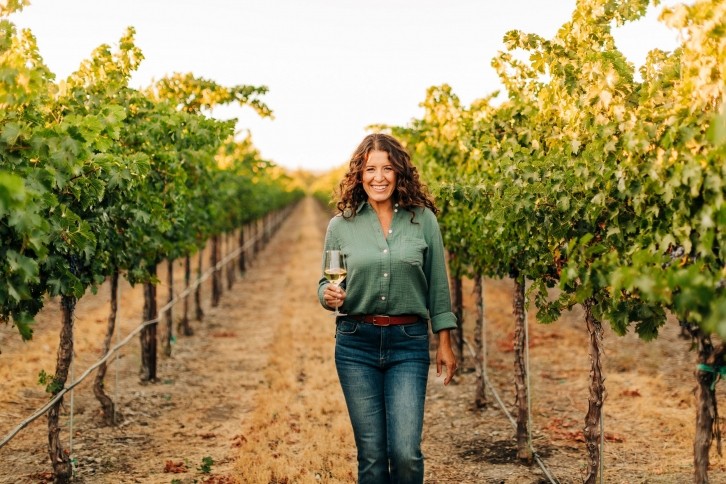
California’s lower alcohol Cupcake Lighthearted wines (8% ABV) were inspired by winemaker Jessica Tomei (above), who craved a lighter option to fit in with her active lifestyle. Here, Tomei tells BeverageDaily about what a typical day looks like for her. The brand, which launched in 2008, is part of California’s The Wine Group, where Tomei is winemaking vice president.
‘My goal as a winemaker is to create wines that make consumers feel there is a product that was made just for them’Introduce us to Cupcake Lighthearted.
Jessica: “We truly want you to have your cake and eat it too – because we know that you deserve to have it all.
“That’s why we’ve crafted the perfect portfolio of wines that are full of flavour but lower in calories, sugar and alcohol. That’s 80 calories, 8% ABV and the Lighthearted name was inspired by our desire to bring you lighthearted moments, made better for you, so you can choose more joy, occasions, and refills without sacrificing a single thing.”
Your products are ‘lower in alcohol, calories and sugar’. Which of these do you think is the most important selling point for consumers?
Jessica: “Cupcake Lighthearted is lower in calories, alcohol, and sugar in comparison to other BFY [better-for-you] offerings in market. Being lower in alcohol and lower in calories is very important to us as we pride ourselves in maintaining the same great flavour profile that you look for in a traditional wine while also helping you achieve your goals of being more balanced in your lifestyle.”
Why is 8% ABV the sweet spot for a lower-alcohol wine?
Jessica: “8% ABV supports the winemaking process that allows Cupcake Lighthearted to be lower in alcohol, sugars and calories, without compromising the delicious flavour profile of the wine.
“Cupcake Lighthearted portfolio includes Pinot Grigio, Sauvignon Blanc, Chardonnay, Pinot Noir, and rosé.”
What does your job involve?
Jessica: “My day-to-day responsibilities vary depending on the season, which rotates around harvest.
“Every season presents new challenges and opportunities which is part of the reason why I love what I do, no day is the same!
“A typical day during harvest will start in the vineyard. I meet with my team to check on the grape ripening development. The quality of our wine is defined by the quality of our grapes and, therefore, my team and I find it crucial to be out in the vineyards every day.
“Our goal is to harvest at the appropriate time, as this will lead to our grapes being perfect for all of our products!
“We then drive over to the winery to check on fermentations and ensure the process is moving along as expected. At the end of the day, the team and I regroup to discuss any challenges we are facing and celebrate our wins.
“During the off-harvest season, we are taking the grapes from our harvest and creating new blends to fulfil any new projects we may have as well as bottling the many existing brands that The Wine Group has.”
What inspires you on your low/no alcohol journey?
Jessica: “My own lifestyle really inspired me in the creation of Cupcake Lighthearted. My goal as a winemaker is to create wines that delight the customer by over-delivering on taste expectations and make them feel like there is a product that was made just for them.
“I have always been an avid fitness lover (fun fact: I paid my way through college teaching aerobics – step and hip hop – and even taught aerobics when I lived in Spain). Leading a healthy lifestyle is important to me and wine in moderation is a part of that lifestyle.
“Everything is about balance and Cupcake Lighthearted is a great lower alcohol product that supports that!”
Wednesday’s Domaine builds the profile of alcohol-free wine
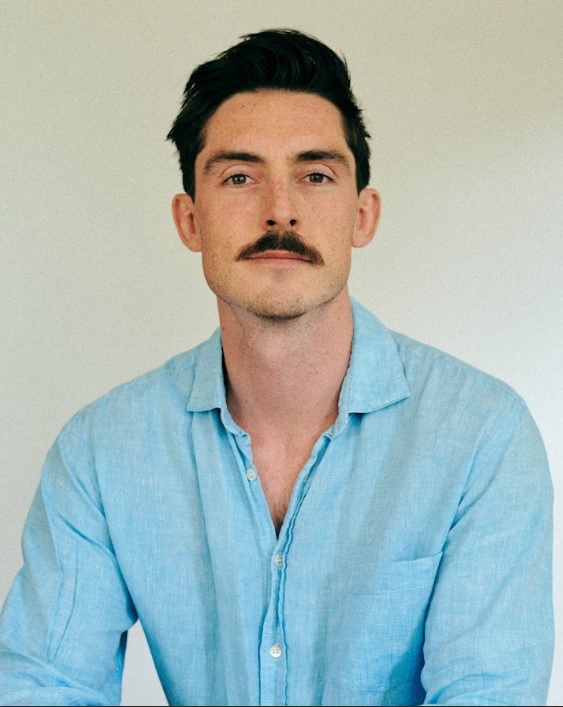
‘The no/low space shares many principles with its alcoholic counterpart: it’s fundamentally about bringing people together, allowing them to share moments and have a good time’UK alcohol-free wine Wednesday’s Domaine is on a mission to become the midweek wine alternative of choice for food and drink lovers. Founder Luke Hemsley (above) tells BeverageDaily why alcohol-free wine is more than a glorified grape juice and how he’s getting that message across to consumers.
Introduce us to Wednesday’s Domaine.
Luke: “I began work on the business during Covid, with the idea for a great tasting, beautifully branded alcohol-free wine first coming about in late 2020.
“We brought the brand to market in July 2022, launching two still wines across several channels.
“Our point of difference is that we begin where most others finish: rather than use dealcoholised wine as the finished product, we use it as a base on which to build, combining the wines with natural ingredients and flavours to the benefit of the liquid’s taste, aromas and texture.”
What do your wines taste like?
Luke: “First and foremost, we’re looking to replicate the experience of drinking wine. To create liquids that have the same body, aromas, mouthfeel, etc, that you associate with wine.
“From there, we have worked to create liquids that are associated with certain styles or varietals, whilst acknowledging the constraints that exist in the absence of alcohol.
“Our red wine, Sanguine, is made with a Tempranillo base yet drinks like a lighter red. It’s fruit-forward, with lots of red fruits and dark fruits on the palate that give way to a soft tannic finish.
“Our white wine, Piquant, is made with an Airen base and is frequently described as very fresh when people first taste it. It has a lovely balance of citrus fruit and green apples, with more savoury, toasted notes on the finish.”
Your production technique takes dealcoholised wines from the La Mancha region of Spain and combines them with natural flavours. How easy was it to create a product you were happy with?
Luke: “It was extremely hard and took close to a year of development work to be happy with the products that we brought to market.
“Ultimately, we think there are a number of key elements that go into creating a brilliant alcohol-free wine: the base wine, the de-alcoholisation technology and the choice of additions.
“At the minute, the addition of those natural flavours serves to create the complexity that you associate with wines (in contrast to something like a soft drink), but we’re working across all three elements to continue developing and evolving our wines, seeking to simplify our formulations and to let the wines sing with minimal intervention.”
‘Part of our role as one of the newer wave of producers is to educate drinkers on how our wines are produced’Some people would say non-alcoholic wine is just a glorified grape juice. What do you say to that?
Luke: “This is a common refrain and one that I think comes from a lack of familiarity with the space and legacy products that typically have been overly sweet or cloying.
“That lack of familiarity is completely understandable and historically alcohol-free wines have been loaded up with sugar to create mouthfeel and impart flavour in the absence of alcohol.
“Part of our role as one of the newer wave of producers – and as an industry – is to educate drinkers on how our wines are produced and why they’re so much more than typical perceptions of them.
“Sharing the fact that our wines actually go through a three-step process – becoming a full-strength wine, de-alcoholisation, blending with other elements – helps to dispel this, but ultimately, it comes down to taste and being able to prove to our customers that you can have a product with all the complexity of a full strength wine, yet without the alcohol.
Where can we find your products?
Luke: “We operate across several different channels (off-trade, on-trade and D2C), working on the basis that we want our wines to pop up where our target audience expects to find them.
“Initially this meant independent wine shops, delis and local restaurants, whereby we could benefit from the passion of those operators in building interest around our products.
“We’re now working with several on-trade groups, namely The Pig Hotels, as part of their commitment to bolster their range of great no/low options for their guests.
“We’re currently only UK-based, but in conversations with several importers in different regions that would allow us to test export markets in a very controlled and structured way (famous last words).”
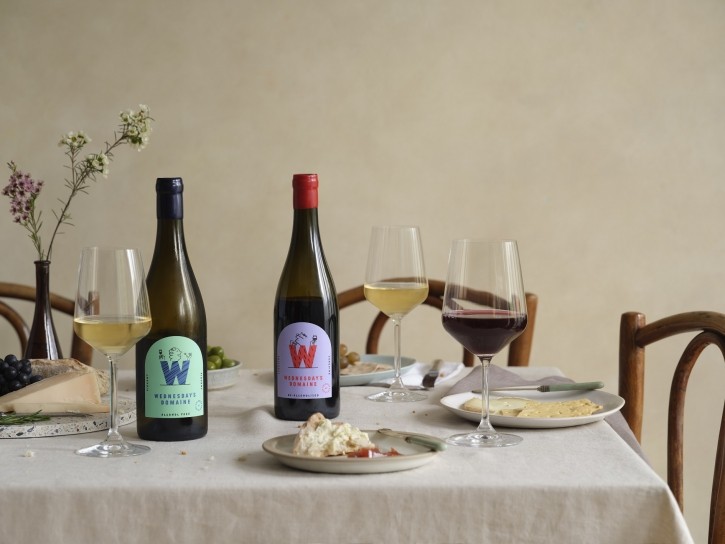
Your wine is stocked in Michelin-starred restaurants, which is pretty impressive. How did those partnerships come about?
Luke: “Largely through knocking on doors and not being afraid to ask the question. A number of these restaurants have brilliantly forward-thinking sommeliers and bar managers who are constantly on the lookout for products to pair with their food menus.
“Throw in the fact that a number of these places offer their guests multi-course tasting menus, including drinks pairings, and you have a heightened need for quality alcohol-free options that can stand proudly alongside the food they’re producing.
“Hospitality is also a relatively small world, where one partnership can often lead quickly to another through introductions.”
What does January look like for Wednesday’s Domaine?
Luke: “It’s a massively busy time for us given the enormous increase in interest in no/low products that comes with Dry January, with an uptick in sales and interest in sampling our wines.
“That said, it’s encouraging to see demand flatten out across the year, which we’re taking as a sign of no/low products moving into the mainstream and becoming a regular part of drinkers’ lives.
“We’re also an early-stage, growing business, so whilst January is certainly busy, everything is always quite busy, new and exciting as we work out how to navigate the next phase of our
evolution.”
And what should we look out for from your company in the rest of 2024?
Luke: “Growing our range is a big one. Watch this space, but we’re planning to bring several new products to market in the first half of 2024, allowing us to reach new consumers, target new drinking occasions and continue growing awareness of the broader no/low space.
“We’re also interested in further developing our brand and the way our products fit into our customers’ lives. By and large, our customers love their food and drink (alcoholic or not), so thinking more about how we can become a part of that presents some interesting creative challenges we’re looking forward to tackling.”
‘We’re spending more time exploring different varietals that are best suited to de-alcoholisation’The non-alcoholic wine category has been slower to take off than the non-alcoholic beer category. Why is this – and what does the industry need to do to boost its prospects?
Luke: “Two primary reasons, to my mind – creating a delicious alcohol-free wine is a more difficult technical problem and the wine industry has historically been less forward-thinking or innovative than say beers or spirits.
“As more producers come into the space, and dedicated alcohol-free ones at that, we’re spending more time exploring different varietals that are best suited to de-alcoholisation and working closely with the technology providers to understand how the wines change through de-alcoholisation.
“This influx of independents is also awakening the larger players to the opportunity, creating a virtuous cycle of investment in both technology and advertising. In much the same way that independents like Lucky Saint [alcohol-free beer] stand to benefit from the likes of Heineken and Peroni sponsoring international sporting events, we’ll benefit from international wine brands extending their no/low ranges and shining a light on the space.
“This all assumes that the quality of those offerings continues to grow, but I feel this is now a one-way path as interest and investment in the space continues to grow.”
‘You never meet anyone who is looking to drink more!’What inspires you as you continue to carve out your place in this category?
Luke: “The no/low space shares a number of the same principles as its alcoholic counterpart. It’s fundamentally about bringing people together, allowing them to share moments and have a good time.
“Being part of that and thinking about ‘hospitality’ in its broadest sense – whether out and about or at home – is what motivates me as a founder and us as a business.
“I also believe that we’re living through a generational shift in our drinking habits – you never meet anyone who is looking to drink more! – and we’re excited to be at the forefront of that.
“We’ve never once said that people shouldn’t drink alcohol – we simply believe in giving people better options at certain moments – and given that we’re right at the start of that journey, I’m excited to think about all of the different ways we can bring that sentiment to life.”
These interviews originally appeared in our sister publication BeverageDaily.


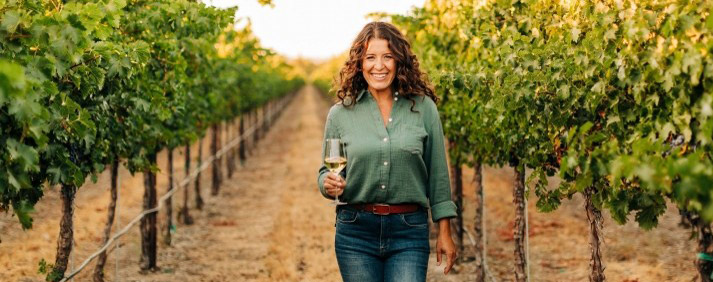








.png)









